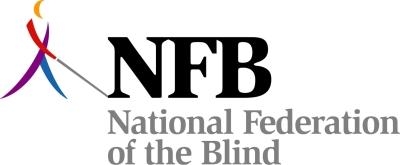Fri, Jan 24, 2014
Regulations On Access To Kiosks Violate Federal Law, Organization Says
The National Federation of the Blind (NFB) has filed suit in the United States District Court for the District of Columbia against the United States Department of Transportation (DOT). The suit challenges regulations, issued by the DOT under the Air Carrier Access Act (ACAA), which purport to require that airline check-in kiosks be made accessible to airline passengers who are blind.

The regulations, which took effect on December 12, 2013, require only 25 percent of airport check-in kiosks to be accessible to blind passengers by ten years from that date. The NFB maintains that this requirement fails to implement the ACAA as Congress intended. The ACAA prohibits discrimination against passengers with disabilities by airlines. The legislative record shows that when it passed the law, Congress intended that the only permissible restrictions on access to air travel would be directly related to the safety of all passengers. Among other things, by allowing continued discrimination against the blind by the airlines on a matter not related to safety, the agency violated the law, the suit claims.
Kiosks can be made accessible to the blind in the same way that ATMs and other customer service devices (such as ticket-purchasing kiosks used by Amtrak and other transit agencies) are already made accessible: by affixing Braille labels, installing headphone jacks, and adding speech software that provides audio prompts to the user. The NFB's president, Dr. Marc Maurer, and director of advocacy and policy, Anil Lewis, both of whom are blind and fly frequently on organization business, are also named as plaintiffs. "The technology to make airline check-in kiosks accessible to blind people is readily available; similar technology is already deployed on ATMs, other kiosks, and similar devices nationwide, and has been for many years," said Dr. Maurer. "Yet the Department of Transportation violated the law by allowing continued discrimination against blind passengers based on spurious assertions by the airline industry that making kiosks accessible will cost too much and take a decade.
"Furthermore, the regulations will only require 25 percent of these kiosks to be made accessible; apparently 75 percent discrimination against blind people is acceptable to the DOT. The agency also failed to make the information it gathered from airlines available until these regulations were issued, which also violated federal law and denied blind Americans the opportunity to challenge the airlines' assertions. We are therefore asking the court to strike down the regulations and order the agency to restart the rulemaking process."
More News
Aero Linx: International Federation of Airworthiness (IFA) We aim to be the most internationally respected independent authority on the subject of Airworthiness. IFA uniquely combi>[...]
Ultrahigh Frequency (UHF) The frequency band between 300 and 3,000 MHz. The bank of radio frequencies used for military air/ground voice communications. In some instances this may >[...]
A Few Questions AND Answers To Help You Get MORE Out of ANN! 1) I forgot my password. How do I find it? 1) Easy... click here and give us your e-mail address--we'll send it to you >[...]
From 2019 (YouTube Edition): Learning To Paint Without Getting Any On Your Hands PPG's Aerospace Coatings Academy is a tool designed to teach everything one needs to know about all>[...]
Also: Sustainable Aircraft Test Put Aside, More Falcon 9 Ops, Wyoming ANG Rescue, Oreo Cookie Into Orbit Joby Aviation has reason to celebrate, recently completing its first full t>[...]
 ANN's Daily Aero-Linx (05.06.25)
ANN's Daily Aero-Linx (05.06.25) ANN's Daily Aero-Term (05.06.25): Ultrahigh Frequency (UHF)
ANN's Daily Aero-Term (05.06.25): Ultrahigh Frequency (UHF) ANN FAQ: Q&A 101
ANN FAQ: Q&A 101 Classic Aero-TV: Virtual Reality Painting--PPG Leverages Technology for Training
Classic Aero-TV: Virtual Reality Painting--PPG Leverages Technology for Training Airborne 05.02.25: Joby Crewed Milestone, Diamond Club, Canadian Pilot Insurance
Airborne 05.02.25: Joby Crewed Milestone, Diamond Club, Canadian Pilot Insurance



